Trade War Watch: Automotive Tariffs and the European Union

It’s been nearly a year since President Donald Trump and European Commission President Jean-Claude Juncker kissed and negotiated a temporary truce aimed at buying the United States and the EU time to renegotiate their positions without fear of new tariffs.
Unfortunately, it seems everyone had better things to do following the smooch.
At the moment, the United States is trying to establish a formal deal with the Japanese government while simultaneously trying to keep the trade war with China from escalating out of control. Meanwhile, Europe faces troubles on the home front (Brexit, rampant protests, Russia, etc.) and is reeling from recent parliamentary elections that shifted votes to both ends of the political spectrum. Neither group is in a position to make the other a top priority. Yet the EU obviously doesn’t want to wait forever, and Germany can’t afford to allow the U.S. to slap it with automotive tariffs.
The U.S. scheduled its 180-day auto deal deadline to coincide with a period in which the European Commission plans to change its leadership, meaning trade negotiations must be finalized before that point if sitting members want to have any say. According to Bloomberg, there’s also enough political heat between the U.S. and EU to make that a bigger problem than it needs to be.
European officials have repeatedly blamed the Trump administration for having an unfavorable view of the bureaucracy in Brussels. While often exaggerated, there’s still plenty of truth to it. Trump has occasionally referred to the EU as an adversary, accusing it of not effectively representing the people of Europe, specifically in regard to Brexit. He urged the EU to accept previous UK deals, to no avail. Conversely, the European Commission has been critical of the White House’s current stance on the Iran nuclear deal and its willingness to impose tariffs on anything it sees as being less than a square deal.
It’s fine for some countries to stand firm and oppose strong-arm negotiation tactics, but others don’t have that luxury.
From Bloomberg:
Germany, which exported 27.2 billion euros of cars and car parts in 2018, is more concerned about Trump’s threat of automobile tariffs than protecting European agricultural interests. The home of Mercedes-Benz, BMW and Porsche generated a surplus of 22 billion euros in automotive trade with U.S. last year.
Recent rounds of bilateral talks have yielded little progress and U.S. officials have resisted even broaching the subject of autos, according to people close to the negotiations.
“I don’t think the U.S. is ready to start on the tariff negotiations,” Cecilia Malmstrom, the EU’s trade commissioner, told reporters following a meeting with U.S. Trade Representative Robert Lighthizer earlier this month.
Despite last year’s tentative plan to eliminate auto tariffs on both sides of the Atlantic, the deal effectively fizzled out after the United States seemingly lost interest. EU officials later explained that any new automotive tariffs would be met with reciprocal actions against the United States. In January, the EU said the measures could add at least 20 billion euros ($22.3 billion) to U.S. products.
With the auto industry now in the grips of harder times, spurred by elevated development costs and a disinterested public with less cash to share, now would be an incredibly poor time for the industry to grapple with new tariffs. Yet Europe and the United States can’t ignore each other forever. Whether it’s with the sitting European Commission or not, a deal has to be made eventually — even if it involves tariffs.
[Image: The White House]

A staunch consumer advocate tracking industry trends and regulation. Before joining TTAC, Matt spent a decade working for marketing and research firms based in NYC. Clients included several of the world’s largest automakers, global tire brands, and aftermarket part suppliers. Dissatisfied with the corporate world and resentful of having to wear suits everyday, he pivoted to writing about cars. Since then, that man has become an ardent supporter of the right-to-repair movement, been interviewed on the auto industry by national radio broadcasts, driven more rental cars than anyone ever should, participated in amateur rallying events, and received the requisite minimum training as sanctioned by the SCCA. Handy with a wrench, Matt grew up surrounded by Detroit auto workers and managed to get a pizza delivery job before he was legally eligible. He later found himself driving box trucks through Manhattan, guaranteeing future sympathy for actual truckers. He continues to conduct research pertaining to the automotive sector as an independent contractor and has since moved back to his native Michigan, closer to where the cars are born. A contrarian, Matt claims to prefer understeer — stating that front and all-wheel drive vehicles cater best to his driving style.
More by Matt Posky
Latest Car Reviews
Read moreLatest Product Reviews
Read moreRecent Comments
- Akear The malibu still outsells all GM EVs combinedMalibu -150,000GM EV's - 75,000Maybe this represents how execrable GM EVs really are. Barra should have resigned years ago,
- Fred Short term bean counters give up the market and long term players gain shares.
- KOKing I thought they quit making it 3yrs ago so... no?
- TheEndlessEnigma Hybrids and PHEVs make sense, EV's do not.
- Ajla My understanding is that the 5 and 7-Series cater almost exclusively to the Chinese market and they sell them here just so they don't look weak against Mercedes and Audi.



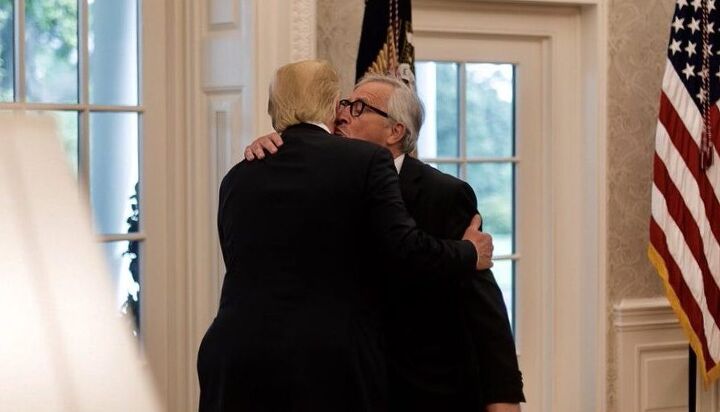















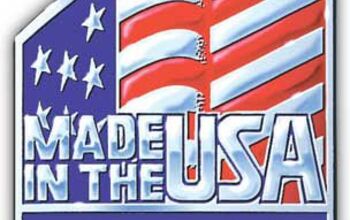
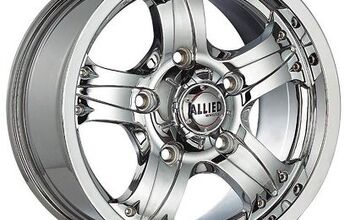

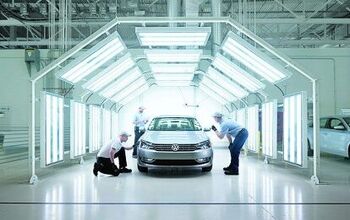
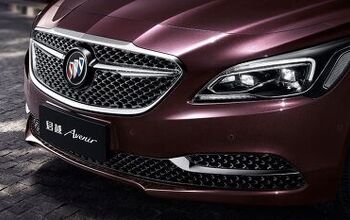




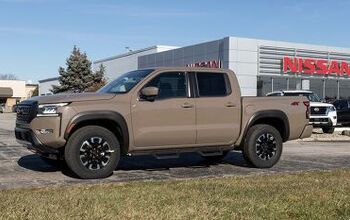





Comments
Join the conversation
Make it a level playing field: have both sides slap on a 'token' tariff of 5 percent on cars that enter the continent. Americans appreciate German cars for what they are. Europeans don't appreciate American cars since they fall behind in a lot of respects: fuel economy, design, fit and finish, handling. And there's nothing Trump cam do about this.
The European really got back at Trump by banning the Corvette and Camaro for some vague emission rules.